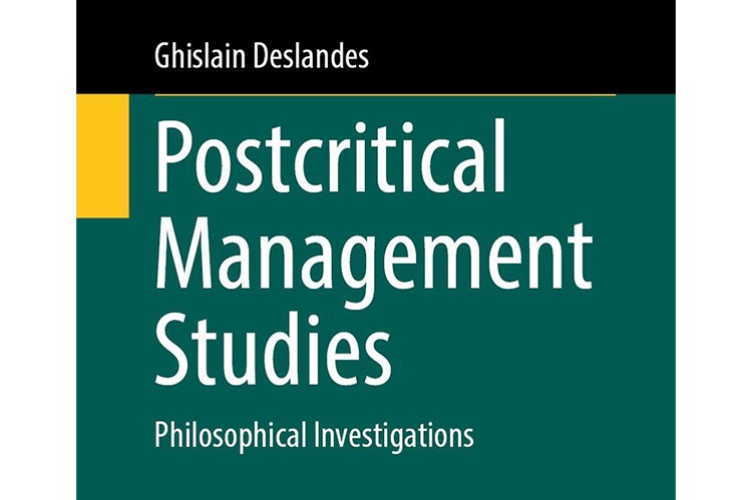Publication A unique book about management
Offering a new definition of contemporary management, Ghislain Deslandes’s latest book is the first of its kind..
Postcritical Management Studies: Philosophical Investigations offers a different analysis by using the philosophy of Michel Henry, whose international influence is steadily growing in two separate fields of research - phenomenology and management -, and taking the real, sensitive and pathetic subjectivity of individuals as a starting point of the analysis, as opposed to the usual large categories (representations, resources, images, and discourses).
It's all about escaping the systemic stupidity of organisations in which we are currently mired.
This book proposes to rethink and rebuild management and its main themes from a philosophical (and phenomenological) approach by insisting on the dialectic of strength and vulnerability; its power of constraint, imitation and imagination; and finally, its framework of action situated in a fourfold concern for the self, for people, for institutions and for the environment. “By favoring a more multidimensional path, and by calling upon different approaches to contemporary management research, new perspectives will open up, enabling us to reconstruct the richness of the managerial imagination as first glimpsed by Xenophon,” Ghislain Deslandes writes. “For that reason, I have proposed a new definition of the term, affording priority to symbolic points of reference and philosophical concepts conducive to offering such perspectives, and temporarily putting to one side the conflict of interpretation that has been raging within the discipline from its earliest days.”
Management as seen through a Henryian lens
While many modern management theories claim to be neutral and objective, Ghislain Deslandes argues that this approach would have been seen as problematic by ancient thinkers. He proposes a phenomenological approach to management, developed by Michel Henry, aims to rediscover an ethical purpose for management.
In the last sub-chapter, he puts forward a definition of management as a “vulnerable force in organizations subject to the pressure of numbers and endowed with a triple power of constraint, imitation and imagination exercised at the subjective, interpersonal, institutional and environmental levels”. The author discusses these different notions in an attempt to provide a deeper understanding of management, one that is free from the obsolescence of ancient ‘protomanagement’ and the outdated and dubious prescriptions of ‘scientific management’.
“It's all about escaping the ‘systemic stupidity’ of organisations in which we are currently mired, starting with a more effective balance between living organisms, social organisms and technical objects,” Ghislain Deslandes sums up.
AUTHOR
 Ghislain Deslandes Professor in the Law, Economics, and Humanities department at ESCP Business School, former elected Program Director at the Collège International de Philosophie
Ghislain Deslandes Professor in the Law, Economics, and Humanities department at ESCP Business School, former elected Program Director at the Collège International de PhilosophieCampuses
